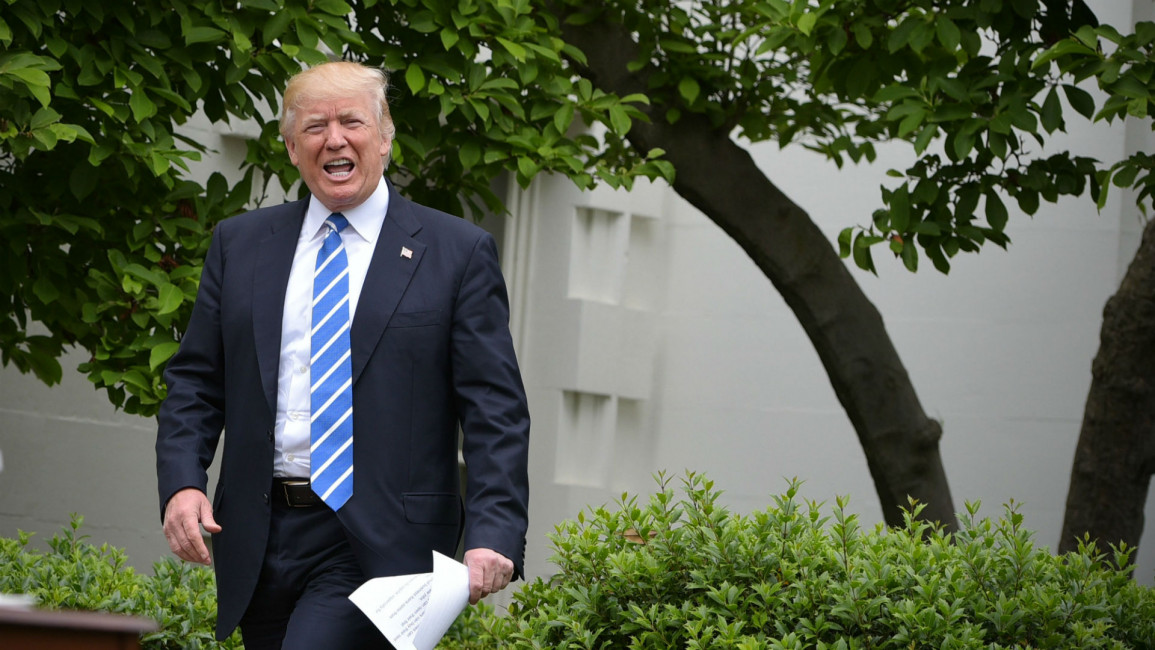
The Palestinian-Israeli conflict: Could Trump be The One?
Palestinians in the Gaza Strip, West Bank and the diaspora have all been waiting for the visit of the Palestinian president, Mahmoud Abbas to the American president, Donald Trump.
Abbas’ visit comes at a time with countless problems, from the peace process, Israeli settlements in Palestinian lands, Hamas – Fatah rift, the Palestinian prisoners in Israeli jails and Gaza’s endless crises caused by political division.
In an interview with Reuters before his meeting with the Palestinian president, Trump said that he wants to see peace between Palestinians and Israelis.
"I don’t see a reason that can prevent achieving peace between Palestinians and Israelis."
Palestinian sources suggest that the Ramallah-based government is generally happy with Abbas' visit to Trump, who earlier this month met with the Egyptian President, Abdelfattah al-Sisi, and Jordanian King, Abduallah to discuss the Palestinian-Israeli case.
Abbas, on the other hand, met both leaders who asserted the Palestinians' right to have their state, encouraging a continuation of peace process negotiations between Palestinians and Israelis.
Senior member of the PLO Executive Committee, Ahmed Majdalani, said that Abbas' visit to DC, along with his diplomatic team aim to form an American-Palestinian base.
"Based on this base, we hope to build American-Palestinian cooperation in two cases, American role in Palestinian-Israeli peace process, and setting a deadline for ending the Israeli occupation and establishing of a Palestinian State," Majdalani said.
Husam Zomlot, the head of the PLO mission in Washington, said that Abbas' meeting with Trump is a historic chance to achieve peace, adding that Abbas is trying to form a strategic cooperation with Trump.
"When an American President in the first day in the White House, says he wants peace, then this is a historic chance." Zomlot said.
Bassam Abu Sharif, former senior adviser to Yasser Arafat and leading cadre of the PLO, said that Trump is the representative of the "Zionist Movement".
Hamas official, Fawzi Barhoum, said that betting on the President's visit to the US is a waste of time and a promotion of illusion.
"The Israeli prime minister and American president will never accept a Palestinian State," Abu Sharif added.
Commenting on Abbas' visit to the US, Yoni Ben-Menachem, an Israeli journalist, said that Abbas fears "a political trap" in Washington. With reference to some sources, Ben-Menachem added that the American team meeting Abbas will have a list of demands.
These demands include: resuming negotiations with Israeli without preconditions, demanding Arab "moderate" states to participate in the negotiations, stopping financial aid to the Gaza Strip controlled by Hamas, approval for a "partial" pause of constructing Israeli settlements, and to stop payment to families of Palestinian martyrs and prisoners.
While a lot of politicians believe that Abbas' visit to the White House will focus mainly on the peace process between Israel and Palestine, it is expected that the Palestinian president will also deal with several bilateral issues. Security cooperation and intelligence exchange, continued political and financial support by the Trump administration to the Palestinian people and the PA are also topics expected to be tackled.
It is too early to tell whether Trump would be the American President every Palestinian dreams of or not, but the visit will either make a good change to the area, or an unexpected one.
This visit will decide whether the peace process will be resumed or not. Palestinian residents are waiting for optimistic news from the White House and its closed doors to solve the endless crises that stormed every home in occupied Palestine.
Mohammed Arafat holds a bachelor degree in Teaching English as a Foreign Language and is preparing for a Masters in Peace and Conflict Studies. Author of, Still Living There, a book documenting Gaza's last war and its aftermath.
Opinions expressed in this article remain those of the author, and do not necessarily represent those of The New Arab, its editorial board or staff.




